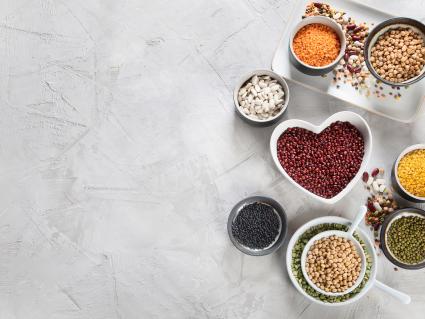Demystifying Carbohydrates

Understanding how carbohydrates and sugars are metabolized by the body.
Carbohydrates and sugars are seemingly one of the most confusing and misunderstood food groups. Often, patients will say they “don’t eat sugar” but, when asked about their diet, they list cereal, bread, pasta, potatoes, rice, milk, juice, and fruit as part of their regular diet. While it’s true, they are not eating white table sugar, the majority of the foods they are eating naturally contain large amounts of sugar.
Understanding carbohydrates and sugars
Carbohydrate is another name for a saccharide (sugars, starches, and cellulose). Saccharides are further classified by their structure:
- Monosaccharides (one molecule of sugar) include: glucose, fructose, and galactose
- Disaccharides (2 molecules of sugar) include sucrose, (glucose and fructose) and lactose (glucose and galactose)
- Polysaccharides (many sugar molecules) include starches (grains, corn, potatoes) that have amylose and amylopectin
- Cellulose comes from plants and is not digestible by humans, therefore cellulose is considered fiber
What is white table sugar?
White table sugar is derived from sugar cane. Sugar cane contains sucrose, glucose-fructose molecules, and is quickly broken down by an enzyme called sucrase in the intestine for absorption.
How does sugar affect insulin and weight?
Glucose stimulates insulin production. In a breakfast of cereal with milk and orange juice, each food contains or breaks down into glucose. Glucose raises blood sugar and stimulates the secretion of insulin, which lowers blood sugar.
- When too much insulin is produced in response to a high-glucose load on a regular basis, it could eventually lead to insulin resistance and type 2 diabetes
- Insulin also causes the body to store and lock down fat
Foods that are high in both carbohydrates and fat - for example toast with butter, cheese and crackers, bagel with cream cheese, ice cream, and fried starches (French fries, potato chips, and donuts) - cause weight-gain.
In light of a recent study that found low-fat diets are not superior when compared to other types of diets - I am now even more convinced that dietary fat is not what causes weight-gain, but the over-consumption of carbohydrates in addition to high-fat foods is what leads to weight-gain.
What carbohydrates are good to eat?
Generally carbohydrates that are naturally high in fiber are recommended. Fiber helps to slow the absorption of other sugars.
- Plants contain the saccharide cellulose, which is not digestible by humans and is therefore considered fiber
- Whole, minimally processed grains contain more fiber than processed white grains.
Choose your carbohydrates wisely! If it is high in fiber, then it is going to be good for you. If it contains a lot of sugar, and little to no fiber, then it would be best to stay away and eat only on occasion.





















